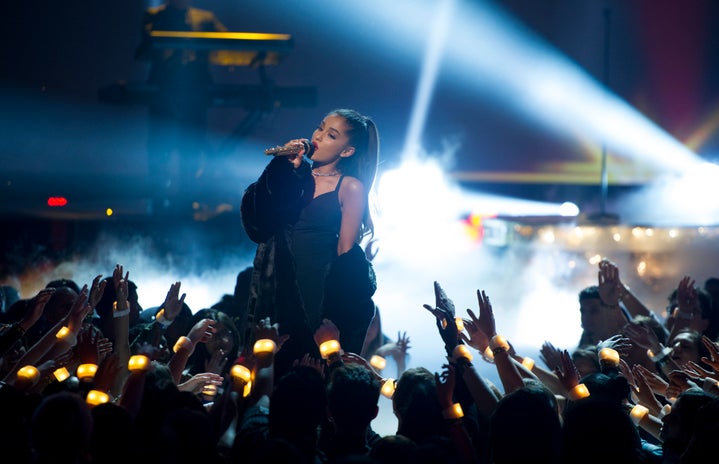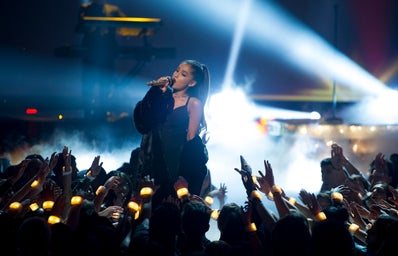Upon the release of Ariana Grande’s 7th studio album, the popstar’s public perception shifted drastically. From the harsh comments in July labeling her ‘not a girls girl’ to Yes?And?’s release where within minutes the twitter hashtag, #apologisetoariana, was trending. It is evident that the public cannot make up their mind about Miss Ariana Grande.
In July 2023, Page Six launched a smear campaign against Grande for allegedly breaking up the marriage of Ethan Slater and Lily Jay. Grande, who was previously married to Dalton Gomez for two years, was a recent divorcee and upon the news breaking of the alleged affair, Jay and Slater quickly filed for divorce as well.
TikTok got hold of the situation and a flood of opinions took over the platform, some in defence: ‘’They could never make me hate you Ariana’’ and some filled with pure hatred: “I have always had a bad feeling about her” and Tiktoks captioned ‘’I hate mornings almost as much as Ariana Grande hates committed relationships’’.
Grande’s personal life has been used for public entertainment for years. Whether it was the rash engagement to Pete Davidson or her relationship with Big Sean, who she met when he was seeing Naya Rivera. The media has always loved to write about and scrutinize Grande for an aspect of her life that for most people is kept private.
Ariana Grande’s popstar persona has been thought of as nasty, demanding, and everyone’s favourite word to describe a woman in the entertainment industry: a diva. I often think a lot of the hate for Grande comes from a place of insecurity and envy towards a woman of such high success and beauty. It is as if there’s a witch hunt for women who threaten other women just by existing, highlighting our internalized misogyny because do we actually have any rational reason behind this dislike? Grande has been called a ‘mean girl’, but have you ever canceled a male celebrity because he was a ‘mean boy’? Probably not.
The floods of hate comments on the internet are highly unnecessary and take up the majority of the content we consume. The media is obsessed with celebrity relationships and gossip; it does not help that with the popularity of TikTok it is even easier and more accessible to share thoughts on a situation freely and openly. What makes us think that we personally know these celebrities and can have an input on their lives—don’t we have bigger things to worry about?
If we can hate on Ariana Grande for possibly breaking up a marriage, why is she the only one that is receiving all the hate? After all, it takes two to tango. The only comments I have seen on Ethan Slater have been surrounding his appearance, when it was him who allegedly decided to leave his wife for a popstar on the set of Wicked.
The media perpetuate these horrendous storylines on women but never do the same to men. Male figures like Brad Pitt or Chris Brown have had scandals of abuse and infidelity, yet their image has not been severed as intensely as Grande’s. Last year, Chris Brown toured a sold-out arena tour worldwide despite the very well known Rhianna incident. If we are criticizing female public figures, we should hold men to the same standard. Why do men have such a quick redemption arc?
The release of Eternal Sunshine was Grande’s response to everyone who had anything to say about her. James Greig, writing for Daze, says ‘“Grande has fulfilled any obligation she could be said to have to her audience – and that seems to matter more than salacious gossip and moral judgment.’’ As a society, we gossip and always have more to say about women in the public eye than men. Take Andrew Tate as an example, he has been canceled and exposed for so many morally unjust occurrences yet I still see his podcast clips online and people sharing his ‘’wise words’’. Whereas, the hate on Ariana Grande was present prior to the ‘she stole my man’ allegations and despite her rise up people still continue to hate on her.
At the end of the day, the decisions that the four parties involved took, they took upon their own conscience. These are grown adults and I am sure that they do not need to hear what a random person with a TikTok account has to say about their own private relationships.
The moral of the story is that we should mind our own business and acknowledge how damaging hate trains and canceled culture are to everyone, but especially women.


